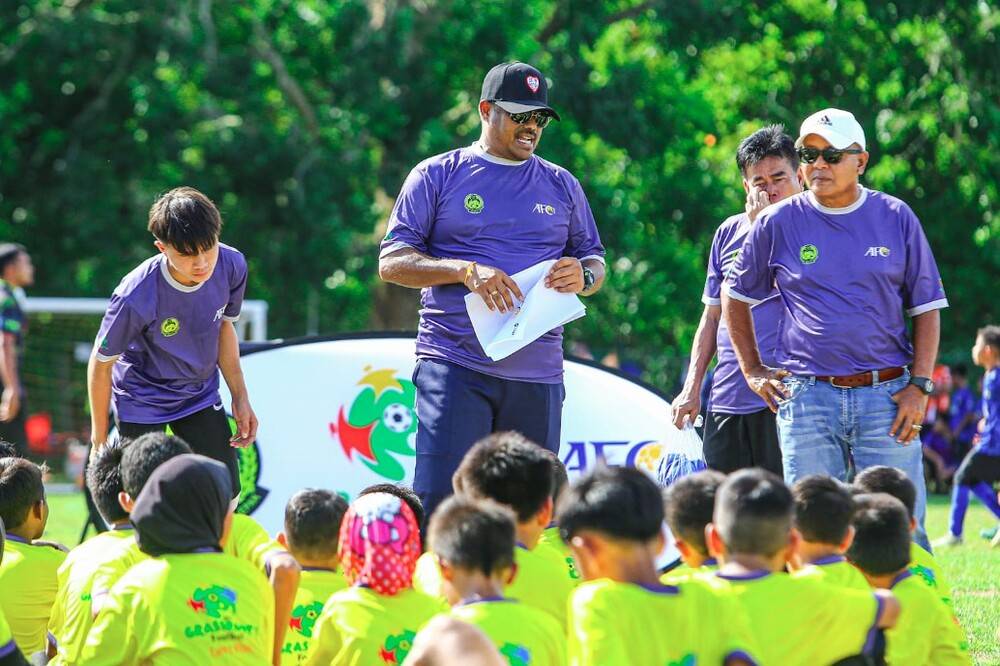SHAH ALAM - Sports science is a crucial pillar in the development of young athletes, helping them reach their athletic potential while also offering pathways to achieve broader life goals.
Sport psychology consultant for the Selangor Red Giants esports team, Phillip Lew emphasised that sports science provides a well-structured pathway for aspiring athletes to compete at prestigious events like the Olympics, extending opportunities beyond traditional sports routes.
For those unable to reach elite levels, sports science offers alternative career paths in coaching, sports psychology, or physical training.
These fields allow athletes to leverage their deep understanding of the athletic world and the sacrifices involved.
"This concept of transition, though still gaining traction in Malaysia, focuses on preparing athletes for life beyond competitive sports, whether due to injury, career shifts, or other circumstances.
"For example, studying performance lifestyle, a growing area in sports science, helps athletes balance excellence in sports with personal life while exploring new roles, such as coaching," Phillip told Sinar Daily in an interview recently.
He cited former Liverpool FC manager Jurgen Klopp as an example of how one does not need to be the greatest football player to become an exceptional coach.
According to Phillip, Klopp’s success spotlighted how sports science can transform aspirations into diverse, meaningful careers with the right education and experience.
Phillip, who spent a decade at the National Sports Institute (NSI) after earning his Bachelor of Science (BSc) and Master of Science (MSc) from Liverpool John Moores University, stressed that Malaysia’s pressing priority is to cultivate a broad talent pool to identify and nurture exceptional athletes.
He drew parallels with the United Kingdom (UK), where cities like Liverpool boast numerous football clubs, offering young talents pathways to professional academies like Liverpool FC or Everton FC.
Phillip highlighted the need for Malaysia to expand participation in sports and physical activities to increase the chances of uncovering future stars.
"However, alongside building this talent pool, it is crucial to ensure that these individuals are guided by qualified, certified professionals to prevent burnout or injuries at a young age.
"This is where sports science integration is essential—not just at senior levels, but starting from the earliest stages of development,” he said.
By establishing a system that supports athletes from the beginning, Phillip believes Malaysia can pave the way for long-term success, citing examples like Cristiano Ronaldo and LeBron James, who continue to excel in their 40s thanks to early and consistent sports science interventions.
"The ultimate goal is to develop athletes who are not only physically robust and mentally resilient but also capable of sustaining their performance over decades.
"This is driven by a talent pool that fosters both excellence and longevity," Phillip added.
As a holder of a License C coaching certification from the English Football Association (FA), Phillip pointed out that addressing these challenges requires a collective effort.
He described that creating a cohesive ecosystem for athlete development involves collaboration between coaches, organisations, management, athletes, families and all stakeholders.
"I often compare it to a Formula One system, where the athlete is the driver and our role is to build and maintain the car.
"If you have an exceptional driver but cannot provide a high-quality car, or if you have a great car but an unskilled driver who crashes it, success becomes unattainable.
"This highlights the importance of a fully integrated system, with sports psychology playing a key role in the process," he added.
Philip will be delivering a lecture on Feb 20 at Sunway University in Selangor. The lecture is part of British Council Pop Up UK campaign, which runs from Feb 20 to 23 and aims to showcase the UK’s educational innovations across various fields, including sports science.
For more information, go to British council’s website at https://www.britishcouncil.my/.


